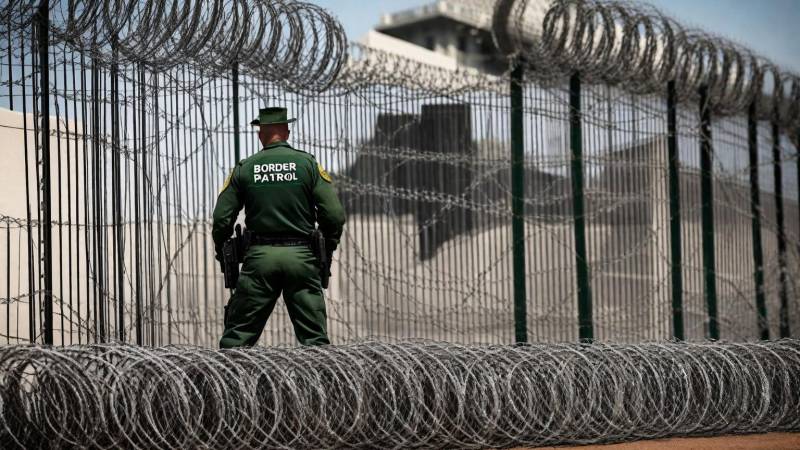
With the administration of US President Joe Biden under immense pressure over record crossings by illegal migrants at America's southern border, he has authorised a high-level delegation to meet with counterparts from Mexico to find a solution.
High-level representatives from the United States and Mexico governments met in Washington, DC, earlier this week for the 15th plenary meeting of the 21st Century Border Management Executive Steering Committee (ESC) to continue bilateral collaboration on key issues affecting their shared border.
Discussions during the meeting focused on key bilateral issues, particularly facilitating the legal flow of goods and people, modernising border infrastructure, promoting public safety, and combatting transnational crime.
From the American side, the talks were led by State Department's Assistant Secretary for Western Hemisphere Affairs Brian A. Nichols and Homeland Security's Assistant Secretary Blas Nuñez-Neto. They were joined by National Security Council Senior Director for Transborder Affairs Monte Hawkins. From the Mexican side, Mexico's Ambassador to the United States, Esteban Moctezuma Barragán, led the talks along with Roberto Velasco, Chief Officer for North America of the Secretariat of Foreign Relations (SRE).
The ESC applauded major binational border achievements during 2023, which included progress on priority border infrastructure modernisation projects and joint border security operations. The ESC also adopted 2024 action plans to guide bilateral border-related efforts.
The ESC meeting reaffirmed the US-Mexico shared commitment to accelerating bilateral trade, reducing trade costs, and continuing a multi-year joint border infrastructure modernisation implementation efforts.
Earlier in the week, a divided Supreme Court had temporarily allowed Border Patrol agents to cut the razor wire which Texas had installed along a stretch of the US-Mexico border to prevent the influx of illegal migrants. The razor wire is at the heart of an escalating conflict between the Biden administration - led by Democrats, and the southern state - led by their political rivals, the Republicans - over immigration enforcement.
The 5-4 vote cleared the way for Border Patrol agents to cut or clear out concertina wire, which Texas had put up along the banks of the Rio Grande to deter migrants from entering the US illegally.
As a result, some migrants had been injured by the sharp wire. The Justice Department had argued before the Supreme Court that the barrier impedes the US government's ability to patrol the border, including coming to the aid of migrants in need of help.
None of the judges provided any explanation for their vote as they released a one-page order, which is being seen as a victory for the Biden administration while the lawsuit over the wire continues.
Not over yet
As the tussle over the border appeared to swing in the favour of the Democrats, groundwork began on January 18 to impeach Homeland Security Secretary Alejandro Mayorkas.
House Republicans have been eager to impeach Mayorkas since seizing majority control last year, particularly as their efforts to impeach Biden over the business dealings of his son, Hunter Biden, have come to a standstill.
Accelerating the action in the new year comes as the focus on border security is driving the discussions on the campaign trail. Former US president Donald Trump, the front-runner for the Republican presidential nomination, has vowed to launch the "largest deportation operation" in US history if he returns to the White House.
Border authorities encountered more than 225,000 migrants along the US-Mexico border in December, marking the highest monthly total recorded since 2000, according to preliminary Homeland Security statistics shared with [CNN].
Over the month, authorities dealt with more than 10,000 migrants crossing daily until more recently, when the numbers began to drop.
More than 11,700 migrant children are also in federal government custody, according to data released jointly by the Department of Health and Human Services and the Department of Homeland Security.

